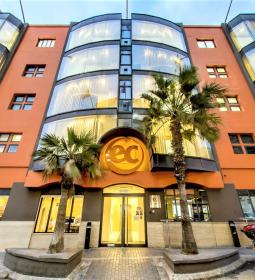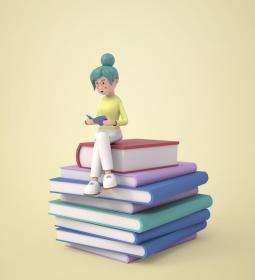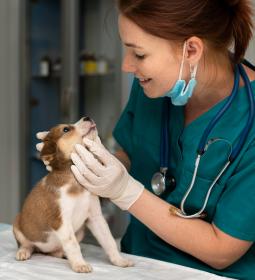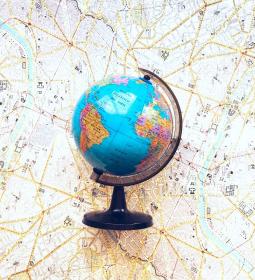- Capital: Bern
- Language: German, French, Italian, Romansh
- Currency: Swiss franc
- Time difference with Moscow: 1 hour
- Flight time from Moscow: from 3.5 hours.
Switzerland is attractive for tourists all year round: from June to September is the ideal time for hiking in the mountains, exploring big cities, from November to March is a great time for skiing, trips to small mountain villages. It is not only a country with beautiful nature, but one of the most stable and wealthy countries in the world, technically advanced, with a strong agriculture. There are several large cities with different spirit, character, walks through which will give a vivid cultural experience - architecture, galleries and museums. Switzerland is a prime example of a country in the world top 10 for sustainability and competitiveness without minerals.
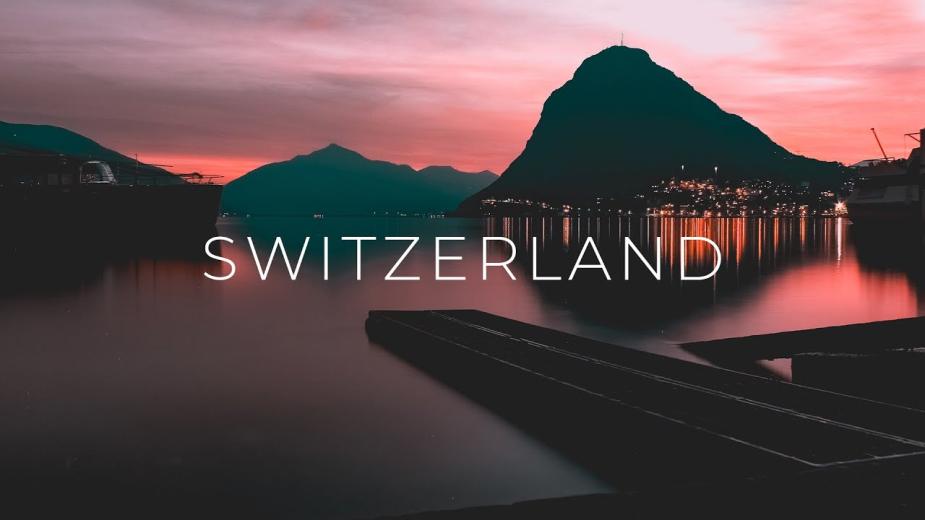
The most important economic role is played by the European Union - up to 50% of all cargo from the north of Western Europe to the south passes through the country. Switzerland's legendary banking reputation is no coincidence - there are many foreign banks here, thanks to a stable economy and legal compliance.
Switzerland is known as the world center of watchmaking, cheese making, chocolate production, but it is also the largest political center - significant political events, conferences on banking, finance, culture, and design are regularly held here.
Flight and visa
Tourists from Russia usually arrive at the airports of Geneva or Zurich. Popular airlines that organize flights from Moscow are Aeroflot, Swiss, Pobeda, Turkish Airlines, from St. Petersburg - Belavia, Finnair, KLM, Air Baltic, Scandinavian Airlines, all flights with one stop.
Switzerland is a member of the Schengen Agreement, so a C-category visa and medical insurance in the amount of € 30,000 or more are issued for entry. When transporting more than € 10,000 through customs, you must fill out a declaration. A prescription is required to transport medicines.
Add fake watches and expensive local brands to the list of standard items prohibited from carriage.
Money
The national currency is the Swiss franc, one of the most stable in the world. They accept local francs, euros, cash, credit cards (Visa, Mastercard, Maestro). Local banks work until 16 (less often until 18) hours, exchange offices - until 21 hours, issue francs and euros.
Transport
The main transport of the country is trains, in second place are buses. Traditional railway routes are widespread here: tourists often choose panoramic ones, whose path runs through picturesque protected areas (Bernina express, Glacier express, Voralpen Express, etc.). Retro locomotives run around the country: tickets can be ordered on the Swiss Railways website sbb.ch. There are bus excursions to lakes, heathlands, Alps, thermal resorts.
The Swiss public transport system is well developed: buses, trams, trolleybuses travel around the cities, there is a system of single passes, there are bike and scooter rentals. Free bicycles are available in Zurich and Geneva upon presentation of a deposit and passport.
Swiss taxis are an expensive form of transport: the latest models are used, so the standard rate is 5 francs per person, 2CHF per kilometer. In the evenings and on weekends, the fare increases, but trips to / from the airport have a fixed cost.
In Zurich and Geneva, you can rent a bike free of charge: rental offices will require an ID card and 20-50CHF / day (deposit).
Rent a Car
The rules for car rental cost do not differ from Germany or Austria - new cars with low mileage are issued here.
Car rental conditions:
- Age - from 21 years old (the most favorable rental conditions are offered to people over 25 years old)
- Credit card for collateral (from 300CHF)
- Documents - passport, international driver's license.
- Driving experience - from 1 year.
When paying for rent in Switzerland, the traveler receives a vignette for driving on toll roads, civil liability insurance, insurance against theft, road accidents, and the possibility of unlimited mileage. The vignette does not apply to the Great St. Bernard, Munt la Schera - extra charge required.
Climate
The climate of Switzerland is continental, changes depend on the relief: the western cantons are influenced by the Atlantic Ocean, while moving to the southeast, the contrast between the seasons is sharper.
Moderately cold winters on the plain, in Geneva - + 2-3 ° C are replaced by low temperatures down to -30 ° C in the high-mountain valleys of the Jura canton. In winter, ski lovers come here, those who want to feel the atmosphere of Christmas Switzerland - seasonal markets, Maslenitsa carnivals, mulled wine by the fireplace in a mountain chalet. Shopping lovers come for the January sales.
Spring in the Alps is early, very beautiful, but the weather is unstable, more suitable for excursion tourism in Geneva and Zurich, where it is warmer in spring. Average temperatures in April are + 13 ° C, it often rains. Spring is the time of Catholic Easter, the Guild Parade in Zurich, and folk festivals.
In fact, summer begins here in May, since June the swimming season is open: in the south, temperatures rise to + 28-30 ° C, in the north - + 19-24 ° C. Lakes Lugano and Maggiore offer pleasant temperatures for swimming, while Lake Geneva remains, um, invigorating throughout the warm season. Street Parade is the main summer techno party in Switzerland, an analogue of the Berlin Love Parade.
Autumn in Switzerland is dry and warm, but the central cantons are distinguished by rains, cloudy, windy October, mountainous regions - frosts. At the end of November, temperatures drop, snow falls in the mountains, and ski resorts open.
Switzerland landmarks
- Switzerland is good in every aspect - vibrant cities, tiny villages and mountain lakes, ski resorts, medieval castles, churches, bridges, museums. Lucerne is one of the richest centers in the country with toy houses: the Kapellbrücke gallery, the bright Jesuit Church, the Gütsch castle hotel, the Transport Museum with retro locomotives, funiculars, and electric cars.
- Zurich attracts history buffs: Grossmünster Cathedral, Fraumünster Abbey, St. Peter's Church, Swiss National Museum, FIFA Museum.
- Bern is an old, conservative city. It is worth visiting the Bernese Cathedral with macabre bas-reliefs, stained glass windows, a performance on the Zytglogge tower, city fountains, bridges, museums.
- Lausanne on the shores of Lake Geneva invites you to see the Gothic Cathedral of Notre Dame, the Church of St. Francis, the Rumin Palace, the Historical Museum, the Museum of Design and Applied Arts, Art Brutus, bars and nightclubs.
- Geneva invites you to see the Notre Dame Basilica, St. Peter's Basilica, Bourg-de-Fours Square, the Palais des Nations, the Same d'Eau fountains, the Flower Clock, the Botanical Garden, the halls of the Museum of Art and History.
- Friborg with a preserved historical center, Gothic cathedrals with baroque chapels, old bridges, a museum of dolls, exhibitions of contemporary art - half French, half German.
- Appenzell is a traditional city with a parliament that gathers in a square, ornate streets with folklore houses at the foot of the Alps, chapels, and dairy farms.
- Stein am Rhein is a fabulous town rebuilt after World War II.
- Tuna with a snow-white castle, wooden bridges, a pedestrian zone on the roofs of cafes and shops.
- Gimmelwald , the village of Berner Oberland, picturesquely located on a cliff, is popular for alpine towns, scenic hikes, ski lifts, rail travel.
- The Upper Engadine mountain resort region, speaking exotic Romansh, invites you to visit the tourist Pontresina, the modest Samedan, and the chic St. Moritz.
- Lugano is the main city of Italian-speaking Switzerland with a well-groomed but boring urban center, picturesque boat trips along the lake, mountain lifts to the peaks on the shore.
Castles of Switzerland:
- Chillon Castle
- Habsburg castle
- Castle Gruyeres
- Castelgrande castle
- Montebello castle
- Aigle Castle.
Natural attractions of Switzerland:
- Mount Matterhorn
- Mount Pilatus
- Beatus Caves
- Rhine Falls
- Reichenbach Falls
- Lauterbrunnen
- Salt Mine (Be).
Entertainment
Ski resorts are distinguished by a high level of comfort and infrastructure development: the highest railway is located here, and the Matterhorn peak even has its own museum.
- The most popular resort is Zermatt : 322 km of slopes, elevation changes from 1600 to 4000 m.
- Gstaad is a resort for wealthy skiers. The heights are lower, the trails are shorter, but there are many interesting activities, a diverse community.
Treatment "on the waters" in Switzerland has been popular since the time of the Roman Empire - there are several prestigious thermal spas. The most popular is Leukerbad (canton Valais): hot springs in the Alps, where the water temperature reaches + 51 ° C. There is a thermal pool, saunas, jacuzzi, ski slopes nearby.
Switzerland is a land of lakes with quiet, calm, picturesque landscapes, high level of service. The descent to the water on the lakes is natural and grassy. The swimming season on Lakes Geneva and Lucerne is July-August, on Lugansk and Maggiore - from June to September.
Shopping
People come to Switzerland for authentic goods of the highest quality. Sales here are infrequent, and the main one is the January one. The main symbols of the country are cheese and chocolate: visit the chocolate shop and ask Schweizerische Spezialität: you will be offered original local sweets.
What to bring as a gift, besides chocolate:
- A folding knife with a red case (blade up to 5 cm, no more to be brought through customs) - 40-100 CHF.
- A genuine Swiss watch for those who are ready to make expensive gifts that will last for many years.
- High-quality local cosmetics La Prairie, Declare, Valmont, Susanne Kaufmann.
Swiss traditions
Christmas is the most romantic time to visit the country (albeit an expensive one) and is best spent in the countryside. Fans of tradition decorate the Advent window, arrange campfire parties with mulled wine, fondue and sausages fried over the fire. An important stage of preparation is the selection and decoration of the New Year tree. The classic Christmas dinner consists of boiled ham, cheese scallop, potatoes, peanut pie, delicately decorated gingerbread.
The Bernese Oberland region is known for its traditional cow farms, which preserve a unique way of life: in the summer they graze cows high in the mountains, make hay in alpine meadows, keeping the livestock. The height of the pastures reaches 1500 m. In the mountains, cows are often lost and fall off the cliffs, so farmers wear traditional heavy bells to the animals, the cost of which reaches $ 1000! When the cows arrive at their summer home, bells are hung under the cornice. Summer cowsheds are located in high-altitude pastures, where they stay for about 100 days. Farmers are hiring a team of cheesemakers to work on each peak - students and townspeople looking to spend the summer in the mountains. Every morning, employees get up at 5 a.m. to milk the cows, take them to pasture and make cheese. They milk the cows again when they come home in the evening. In summer, all the milk is used for cheese (it's too difficult to get it to the market). In winter, when cows are at lower elevations, it is easier to deliver fresh milk to buyers.
Each farm maintains its own herd of pigs, which usually do not appear on Alpine tourist posters. The leftovers from the cheese factory - whey - harm the ecosystem if thrown away, but the pigs love it.
Hotels
Hotels in Switzerland are distinguished by a high level of service, but the cost of accommodation is 20-30% higher than in Germany and Austria. The hotels undergo state certification, so that all the "stars" are justified. The most expensive hotels are located in large cities, in thermal springs, and in ski resorts.
Accommodation cost (for reference):
- Double room 3 * (Geneva, Zurich, Bern), modest chalet - from 100CHF.
- Double 4 * - from 175CHF.
- Number 3 * in medical resorts (Leukerbad) - from 130CHF per day.
- Renting apartments from local residents - depends on the area and the duration of the lease.
- A bed in a common room in a hostel - 40-45 CHF.
Camping sites for motorists, those who travel on their own, are varied. There are classic campgrounds with places for tents, showers, toilets, as well as glampings - separate comfortable bungalows that do not differ from hotel rooms. Tourist "parking lots" are located in places of popular eco-routes, on the banks of water bodies, for example, on lakes Lugano, Maggiore, Neuchâtel and others.
Swiss cuisine
Swiss cuisine is probably one of the first fusion cuisines in Europe: it combined the traditions of France, Italy, Germany. The most popular local recipes are fondue and raclette. The latter is more often served at festive dinners.
In the central part of Switzerland, Alplermagronen is served - a shepherd's casserole with pasta, kirsch curd cake. Zurich people eat potato rösti, tirgel honey biscuits, veal in züri-geshnetztltes sauce.
In St. Gallen they make spicy sausages reminiscent of German ones, and in Bern - Berner Platte: a dish of sauerkraut with beans, fried potatoes, veal tongue, Bernese sausage, onion pie, nut cookies, honey cakes.
Basel pamper you with flour chowder, cheesecake with Käsewähe pastry, traditional cherry biscuit cake, hazelnut meringue and buttercream with cherry syrup.
The French part of the country loves stews with leeks, sausages, fondue.
The retro-Romance Graubünden offers meat, buckwheat noodles with pizza vegetables, barley soup with bacon, capuns (vegetables with meat in Swiss chard leaves). For drinks, try local wines (Riesling, Pinot Noir, Sylvaner), schnapps or kirsch (strong alcohol made from cherry or cherry berries).
Where to eat - well, approximate prices:
- Michelin-starred restaurants (Stucki) - budget lunch from 90CHF
- Moevenpick - from 25CHF
- Buffets at Manora restaurants - from 20CHF
- Fast food chain restaurants (Coop, Migros) - second + salad - 17CHF
- Fast food cafe (burgers, pizza) - 10CHF
- Asian and Mexican eateries - 7CHF
Don't miss out on picnics in nature or in parks with local quality products and traditional pastries.
The most inexpensive grocery stores are Coop, Migros, Denner: these are great choices for those who cook at home.
Gratuities in Switzerland are usually included in the bill, so you do not need to leave anything in excess of the check amount.


